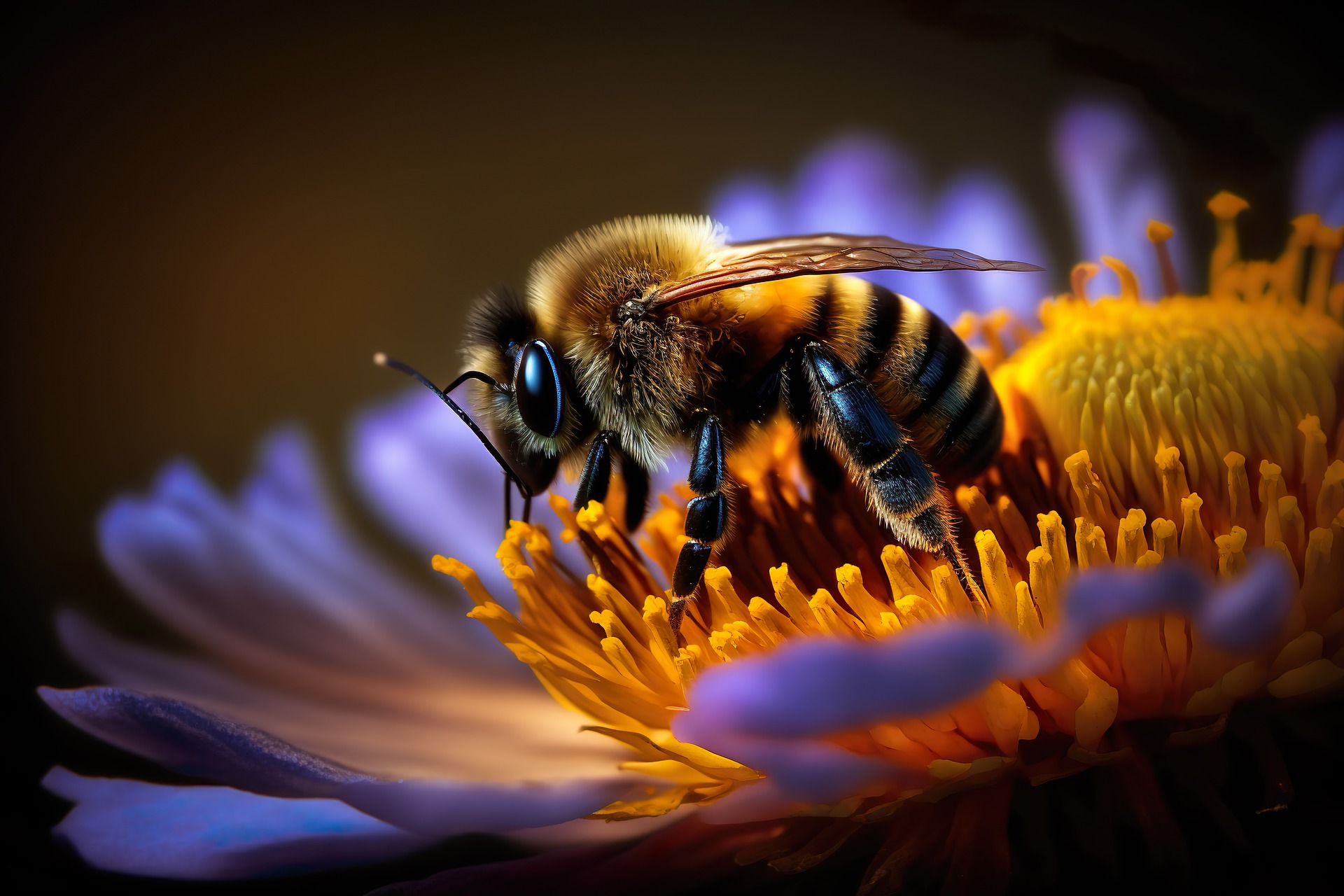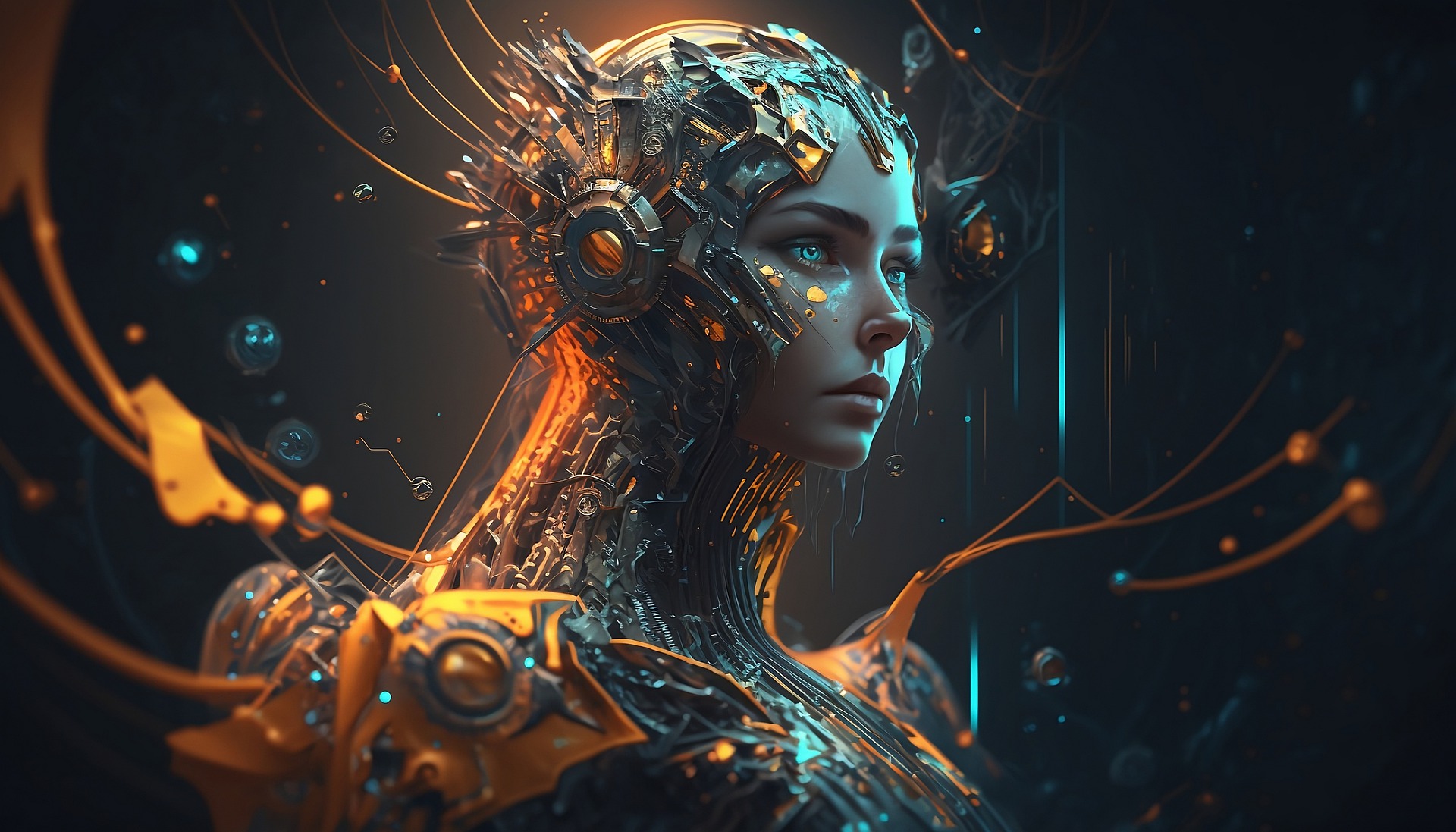Researchers at Macquarie University, Sydney, Australia and the University of Sheffield, UK, found that honeybees have better decision-making abilities than humans for the things that matter to them. The research revealed that evolution is an important factor in developing their small brains to balance reward, effort and risk by making fast and accurate decisions. The research team also stated that this discovery could help to understand the human cognitive process and design robots that think like bees.

Image Credits: Pixabay
How wise are honey bees?
Honeybees are known for producing honey- a nutritious food product. However, they may soon be recognized for their critical thinking and better decision-making abilities. These small hard-working insects have been reported to outshine humans in their thinking ability. It is believed that their high intelligence helps them to face difficult situations and survive in a challenging environment. From collecting nectar to returning to the hive, bees are at a higher risk of aerial attacks by predators. On land, these insects are vulnerable to those attackers who camouflage themselves as flowers, such as cobra lilies, sundews, etc. To tackle these dangerous situations, honey bees have to make quick and efficient decisions.
“Decision-making is at the core of cognition,” said Andrew Barron, Professor at Macquarie University. “It’s the result of an evaluation of possible outcomes, and animal lives are full of decisions. A honey bee has a brain smaller than a sesame seed. And yet she can make decisions faster and more accurately than we can. A robot programmed to do a bee’s job would need the backup of a supercomputer.”
To study bees’ sharp minds, researchers at Macquarie University trained 20 bees to recognise five different coloured flowers: Blue flowers contain sugar syrup, green flowers have quinine and a bitter taste, and others contain glucose. These 20 trained bees were discharged into the garden having flowers contain distilled water. Researchers filmed these insects for over 40 hours to trace their flight paths and measure the time they took for making decisions.
They found that it took bees only about 0.6 seconds to identify which flower contains food. This small time window reflects the higher level decision-making capabilities of bees. However, it took them about 1.4 seconds if they were unsure about the flowers with the food. In most such cases, there was a maximum likelihood of the flower containing food.
How bees can help develop algorithms for AI and robots
According to Professor Barron, current robots have certain limitations. Firstly, these robots rely on remote computing for functioning. Secondly, drones lack decision-making abilities and need to be in contact with data centres to obtain commands for performing tasks.

Image Credits: Pixabay
Based on the bees’ study outcomes, researchers outlined bees’ neural pathways that enable fast decision-making. They created a computer model based on the structural layout of these insects’ brains. “Our study demonstrates complex autonomous decision-making with minimal neural circuitry,” stated James Marshall, Professor at the University of Sheffield. “Now that we understand how bees make such intelligent choices, we are investigating how they excel at rapidly gathering and analyzing information. We suspect that bees leverage their flight movements to enhance their visual systems, enabling them to detect the best flowers more effectively.”
By investigating bees’ mega minds, researchers have discovered possibilities for advancement in AI and robotics. They took inspiration from nature and mighty insects and are working on building machines that can make swift, fast and precise decisions. “AI researchers can learn much from insects and other ‘simple’ animals. Millions of years of evolution have led to incredibly efficient brains with very low power requirements. The future of AI in the industry will be inspired by biology,” said Professor Marshall.
The detailed experimental study has been published in the journal eLife in June 2023.
If you enjoyed reading our articles, please consider supporting us by buying our geeky merchandise on Instagram.



1 comment
[…] their elaborate patterns of behaviours and adaptations, the animal world constantly contradicted conventional notions towards parental […]